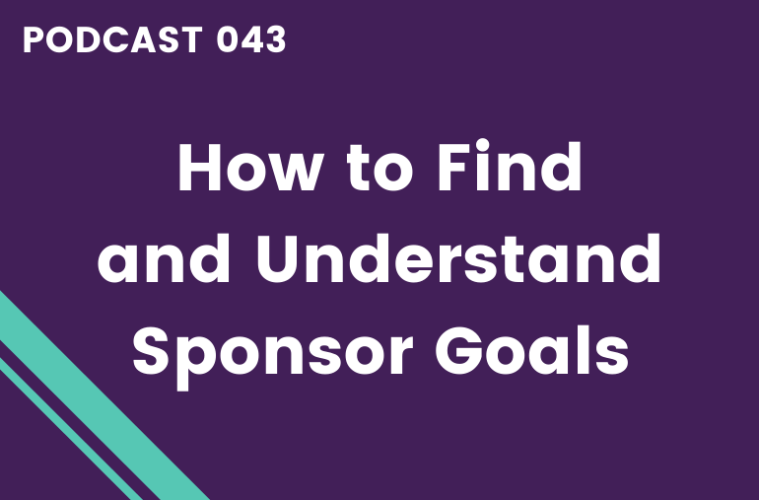10 things to research before your first motorsport sponsorship meeting
If you’ve read Get Paid to Race, and put the chapters into action, you’ll be entering your first partnership meetings fully aware of your prospective sponsors’ goals and how you, in turn, can help move their business forward.
You’ve got that covered, right? (If not, you probably need this).
But what about the background work that ensures your meeting goes smoothly? A meeting where you feel good, the atmosphere is buoyant and engaging, and your inner critic is piping down because you’ve freed yourself from all worries and covered all eventualities.
This is your checklist reminder for a successful sponsorship meeting and the prep you need to do beforehand. Let’s get into it.
Not all surprises are good surprises
Have you ever expected a one-to-one chat and found yourself in a panel-style interview? The. Absolute. Horror. Double-check the email that confirms the Zoom call or IRL meeting; was anyone else copied in to attend too? Knowing whether the meeting is with a marketing assistant or the executive board is game-changing. Find out the job title of everyone attending and don’t be afraid to ask your contact to clarify further — all of this may help you identify where the business feels it is in the partnership proposal process.
Check out their vital statistics
This should go without saying, but take the time to double up on your knowledge of the company or individual:
What is their management structure?
Their recent history
Greatest wins (or losses)
This kind of information ensures you don’t stray into topics that hold any friction, keeps you focused on influencing the key decision-makers, and able to comfortably navigate your way through any relevant small talk that naturally occurs at such meetings.
Have a foolproof personal plan
Have you ever been puddle splashed by a van on the way to an interview? Or struggled to find parking when you’re on a tight schedule? These are distractions that can fuel stress and anxiety, and cause you to lose focus from your main purpose on the day of your meeting. Make this a 30-minute job for the night before to include:
Checking your route
Finding out your parking options
Confirming the exact meeting space
Checking the weather
Making these a habit can be the difference between arriving fresh and presentable or wet through and frazzled.
If it’s an online meeting, have you got the correct links, software, and equipment ready and tested? Double-check the date and time too; different time zones and overlooked admin mistakes can change everything. Give yourself every opportunity to enjoy your meeting without avoidable distractions or mishaps.
Who else are they working with?
Have you got a broad idea of their other sporting interests, profile-raising efforts, or charitable commitments? Yes, this could open up unforeseen conflicts of interest, but also, perhaps, future opportunities to partner up with their charitable or social action efforts. Knowing where you could stand, allows you to strategically place yourself in their minds as a natural fit. Be sure you are bang up-to-date with any shared interests and value-giving opportunities.
Find out where the influence is
Beyond your initial research of the sponsor’s goals and building a relationship with your contact, it’s worth looking around LinkedIn, other social media, and business publications for who the current movers and shakers are in the business. Who is making a name for themselves, who are the hot new graduates, and the apprentices? You may be surprised to learn where the decision-makers, influencers, and thought leaders are in the business — job titles often do not tell the whole story.
Be a financial detective
You may have had that qualifying conversation already but it’s worth being a bit of a detective online to gather an understanding of their market value and the position they hold in the wider industry. You may want to adjust your proposal to ask for more (or less). Trade news articles and Companies House records can be very revealing. Hold it all with a pinch of salt though, and resist drawing any conclusions at this time.
Social and media presence
Perhaps you’ve already made a top-line analysis of their socials, but have you looked at their public and industry-facing presence? Look out for any themes or directions their business is moving in. Is there a noticeable upgrade to their social output that suggests they now have a media manager in place? Are they featured in certain papers regularly, or making headlines in other areas of expertise? Being clued into the life of their business gives you a much better understanding of your potential place in it.
Market share
This naturally follows on from the above points. Find out more about their industry and you’ll see what they also are looking out for as they fight for market share. This is invaluable as their goals will become clearer and you may well find an angle where you can add value and give them an edge — perhaps even one they haven’t seen. See what their clients and customers are saying, too. Check review sites and peer recommendations on LinkedIn, there are clues here for finding your unique value to them. It’s worth pointing out here that poor employee reviews could mean they are difficult to work with.
Conflicts of interest
The more you learn, the more you know. And yes, sometimes it throws up a curveball that could put the brakes on the partnership you wish to propose. Ask yourself this:
Who do they publicly praise and associate with?
Do you share the same ethical values?
Could they benefit from your expertise and influence in developing their standing on social or cultural issues?
On the other hand, if you discover something that doesn’t align with your values and efforts, be comfortable with bowing out at this time.
Their industry
Take a step back and understand more about the industry your potential sponsor is in. Industry publications, conference reports, and thought leadership articles on LinkedIn or in the press can give you a strong sense of the concerns, challenges, and opportunities available to them. Predicting where you can see the partnership heading in later years can give you a head start on re-signing with them year on year.
The sponsorship journey should be an enjoyable path of discovery, and these pointers can help you create deeper relationships with potential sponsors — making it much easier to land that deal. Research is a key part of the sponsorship process both before you pitch and during the process. Don’t miss this step out, as it’ll help you understand more about a potential sponsor, giving you the power to add even more value to them.




